Steph W. from SEOPressor


...help you check your website and tell you exactly how to rank higher?


85
score %
SEO Score

Found us from search engine?
We rank high, you can too.
SEOPressor helps you to optimize your on-page SEO for higher & improved search ranking.
By on January 17, 2020

Before we begin reviewing the events happened in 2020, I would like to take this opportunity to wish fellow SEOPressor’s readers a Happy New Year!
Now, let’s begin.
Let’s say you have a website that only has audio or videos or images or other forms of multimedia – will Google be able to understand it?
This was from a question during a Reddit discussion when someone asked how to optimize an audio-based site that features podcasts and audiobooks.
Here’s the original question:

Note: PWA is short for progressive web app, a website that behaves like an app
John Mueller reaffirmed that all pages need textual content in order for Google to understand what the page is about and subsequently rank, as quoted:
“You always need textual content on-page, regardless of what kinds of content you might have. If it’s a video-hosting site, you will still need to include texts like titles, headings, description texts, links, etc… this makes it easier for search engines to understand what your website is about.”
Part of his answer “…Make it easy for search engines to understand your content and how it’s relevant to users and they’ll be able to send you relevant traffic.” also brought up the importance of relevancy which is key to solving any content writing problem and one of our key focuses in 2020.
Google’s Chrome version 80 will begin blocking website push notification. While Chrome will allow users to opt-in to the push blocking, some sites will be automatically enrolled in the blocking features.
There are two situations in which Chrome will automatically block push notifications.
Meanwhile, automatic enrollment in push notification blocking will increase as Google continues to gather data.
Google also notes that it will be introducing quieter UI notifications and penalties for abusive websites that use it to deliver ads or malware or those who use them for deceptive purposes.
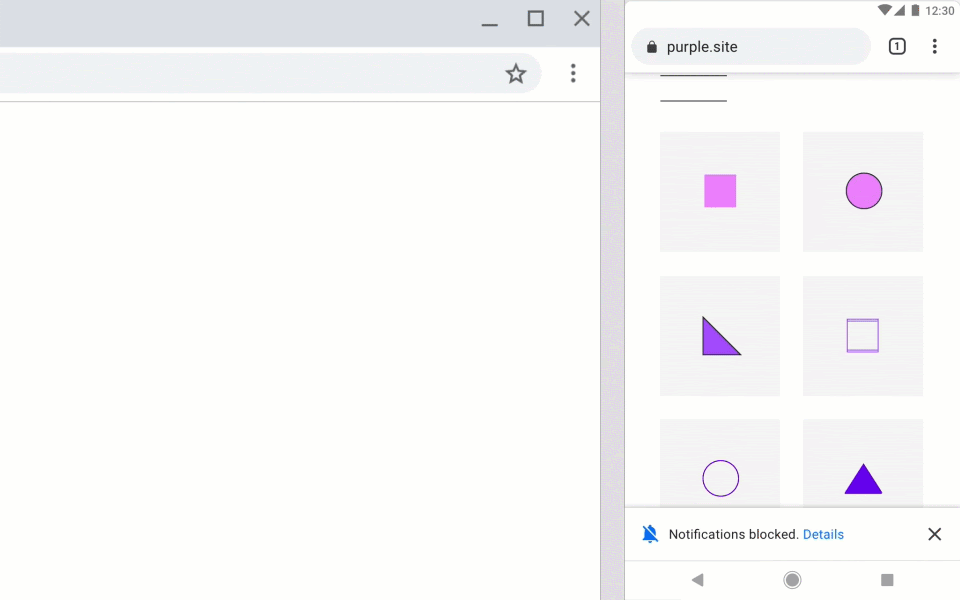
When version 80 of Chrome rolls out, you can manually opt-in to the new UI or disable it entirely.
This push notification blocking will become effective with Chrome 80, which is scheduled to be released on February 4, 2020.
Google announced that it will no longer be supporting the data-vocabulary markup for rich results after April 6th, 2020 and that it will be moving all in on Schema.org.
In fact, Google will be contacting those who have implemented data-vocabulary markup via Search Console with warnings. SEOs, webmasters, site owners, etc, now have a few months to transition to schema.org markup.
For many SEOs, it has always been a love-hate relationship with Google’s featured snippets and people also ask (PAA). On one hand, these instant answers may take away clicks from existing listings, but on the other, they are existing opportunities.
Brian Freiesleben posted on Twitter that Google is showing in some PAAs – a note that the answer is “summarized from table” and links to its source in a subheading that is supposedly grey. Here is a screenshot obtained by searching “maine people”.
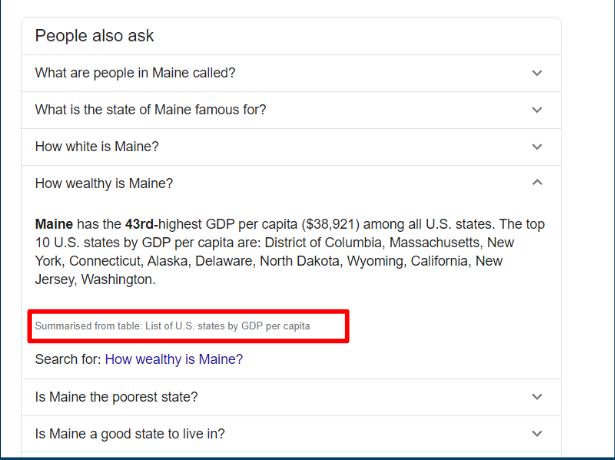
The format puts a site’s brand front & center, helping searchers better understand where information is coming from, more easily scan results & decide what to explore. Learn more about the new look in our post from last year, when it launched on mobile: https://t.co/Or3YLOHk35
— Google SearchLiaison (@searchliaison) January 13, 2020
On Tuesday, @searchliaison announced that there is some changes to the appearance for desktop.
The website, favicon, bolded “ad” labels and breadcrumbs are live. This format helps searchers better understand where information is coming from and scan results easily.
Google SearchLiaison also shared that site owners can select a preferred icon they wish to have appear next to the listings.
However, Google have a guideline for favicons. You may find them here: Favicon Guidelines
Last Friday, Joy Hawkins spotted photos on Google Screened ads. This is how it looks on the SERP:
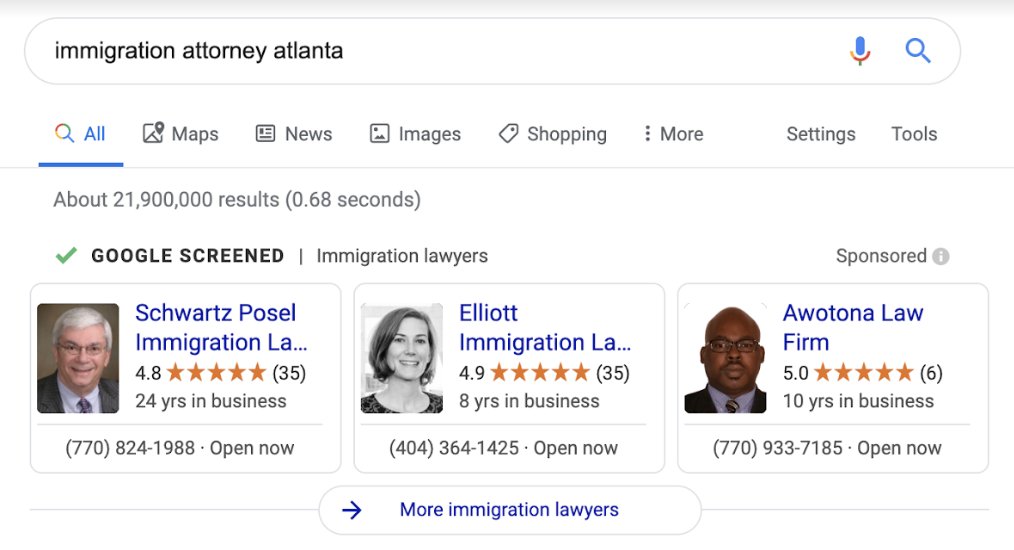
Google Screened with Photos
We believe that this is a test as most of us are unable to replicate it:
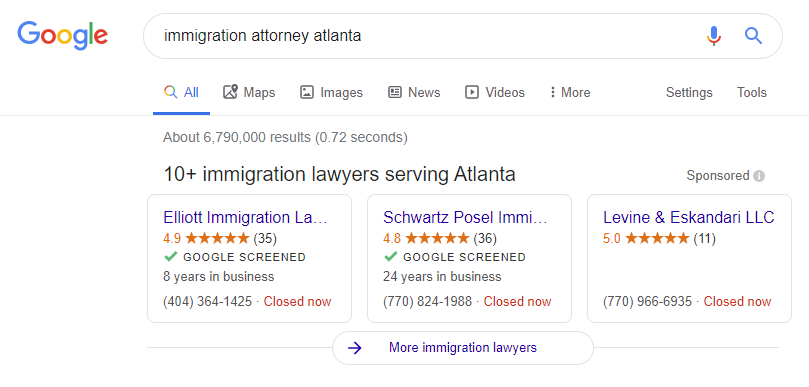
Google Screened Without Photos
The photos will definitely help with the CTR, don’t you think?
If you have a local business and want to get the Google Screened badge, check if your area is available for Local Services here: Understanding the screening and qualification process.
Shay Harel, the founder of Rank Ranger, spotted that Google was showing a tweet in the Google Featured Snippet and People Also Ask section.
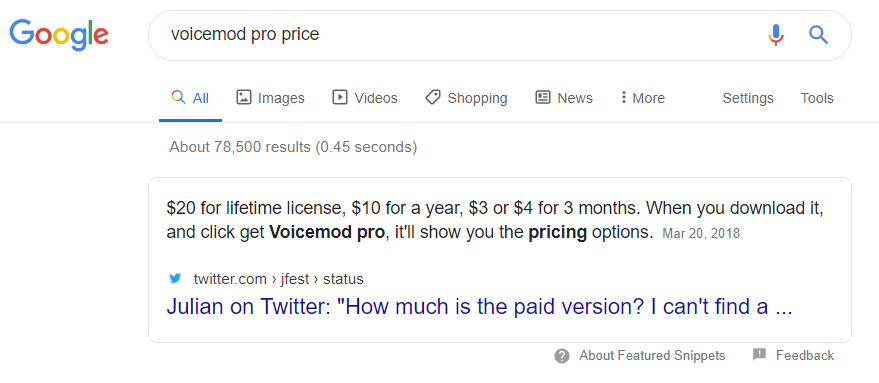
This raises the question – are tweets making a comeback? Tweets, Reddit posts and so forth used to be featured when featured snippets initially launched, but now it’s rare.
Google officials announced that it has rolled out an algorithm update that will now restrict URLs shown in the featured snippet from appearing again within the first ten organic search results.
If a web page listing is elevated into the featured snippet position, we no longer repeat the listing in the search results. This declutters the results & helps users locate relevant information more easily. Featured snippets count as one of the ten web page listings we show.
— Danny Sullivan (@dannysullivan) January 22, 2020
This was confirmed by Google’s Danny Sullivan, as he said the new algorithm tweak will make sure the Search Results page is not cluttered, and only relevant information gets displayed.
He also confirmed that starting today, the featured snippet will be counted as one of the ten listings on the SERP.
@bloglikepru took Moz’s image about site linking to Twitter. It was to confirm with Google’s John Mueller whether what Moz shared was true. Here’s the tweet.
Is this True? @googlewmc @JohnMu #SEO #SearchEngineOptimization pic.twitter.com/NH1lBfekow
— BlogLikePru.com 🎄 (@bloglikepru) December 29, 2019
John Mueller replied with a solid “no”. It’s not the first time John Mueller has answered questions about linking out.
Here is another straightforward question and answer back in 2017.
no.
— 🍌 John 🍌 (@JohnMu) February 24, 2017
Most webmasters disagreed and said that linking out does help SEO. What’s your stand on this?
What we know is that if we want to link, we have to ensure they’re good sites, just as Matt Cutts wrote back in 2019: “parts of our system encourage links to good sites”.
Bing has just launched a new program called Bing Pages that allows individuals to control how they appear in Bing search engine and other Microsoft services.
Currently in beta, Bing Pages allows users to customize their page with content such as social media feeds that they can easily manage.
Looks like Bing might be letting people create "Profiles" for themselves, similar to what you see in search results for people who are well known.
=> https://t.co/oY2wFz72zu pic.twitter.com/QzBO0ZSB79
— Arlo Godfrey (@Arlodottxt) January 7, 2020
This makes it a great way for individuals and businesses to promote their media profiles at no cost, allowing them to better show up on Bing search.
I don’t know about authority, but we treat links on http the same as links on https sites.
— 🍌 John 🍌 (@JohnMu) January 10, 2020
On 30/12/2019, we shared that John Mueller stated that sites linking to authoritative content do not count more than those who do not.
Nearly two weeks after, Google’s John Mueller was asked: “Do non-secure sites pass LESS authority or page rank than secure sites?”.
Perhaps some of you have thought that secure sites do pass more authority?
However, John Mueller replied saying that he doesn’t know about authority but Google treats links on HTTP the same as links on HTTPS sites.
Well, was this a surprise to you? Let us know your thoughts on this. 🤔
While scrolling through Twitter, I’ve come across Marie Haynes’s tweet and Dr. Pete’s comment which made me giggle for a while. Check out the tweet embedded below. 😂
This is the most succinct summary of Google customer service that I’ve ever seen.
— Dr. Pete Meyers (@dr_pete) January 15, 2020
Find the original tweet here:
@GoogleMyBiz might be able to help
— Danny Sullivan (@dannysullivan) January 14, 2020
Just in case you’re lost, Danny Sullivan is Google’s public liaison of search.
According to an article by Search Engine Journal, YouTube has steadily increased its organic visibility in Google SERPs over the past two years and recently surpassed Wikipedia for #1.
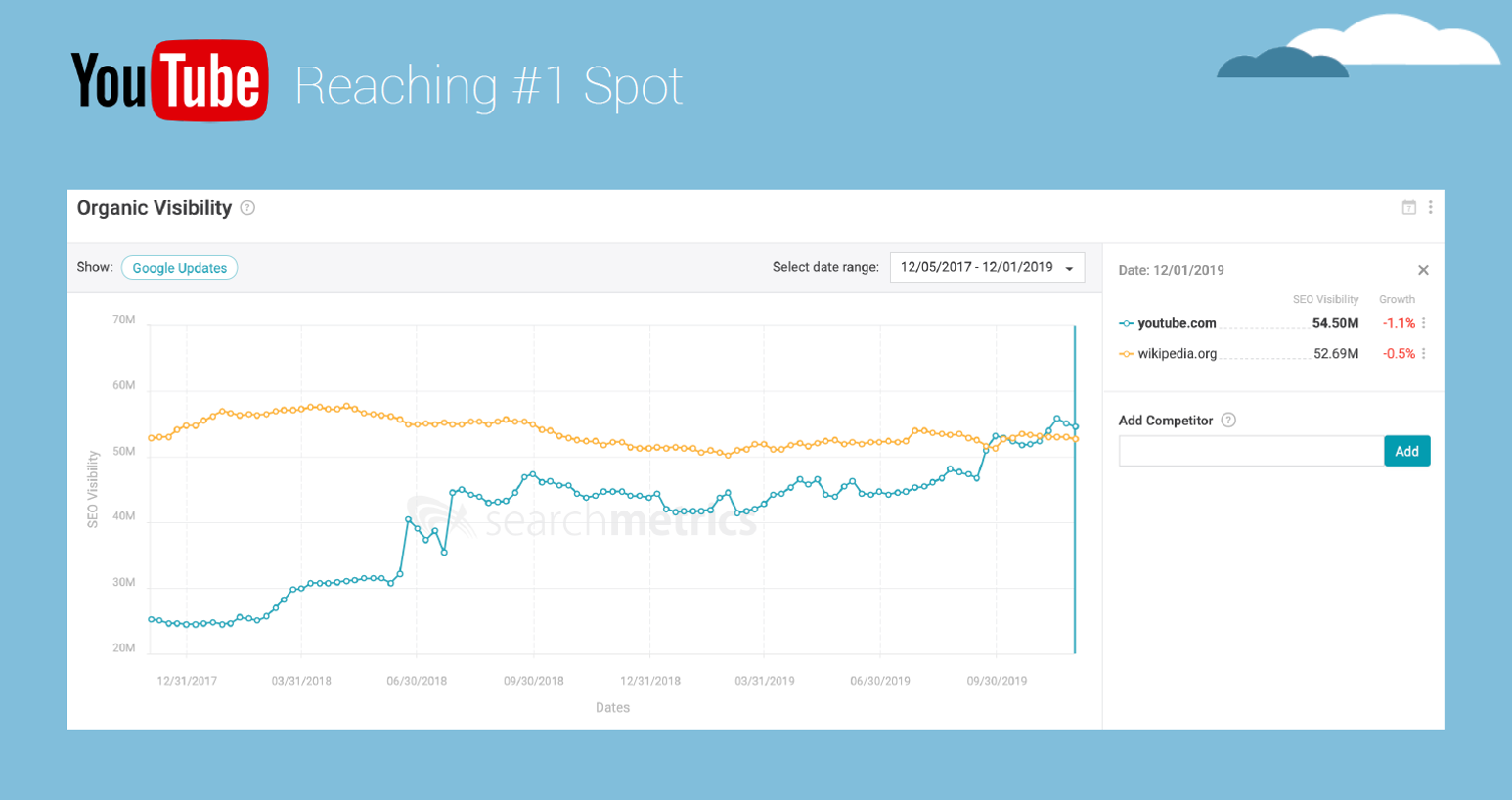
Now this means it’s time to put emphasis on creating video content as well for both YouTube and Google audiences.
Updated: 24 February 2026


Save thousands of dollars (it’s 100x cheaper)

Zero risk of Google penalty (it’s Google-approved)

Boost your rankings (proven by case studies)
Rank High With This Link Strategy
Precise, Simplified, Fast Internal Linking.
